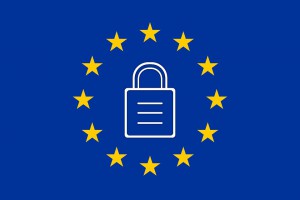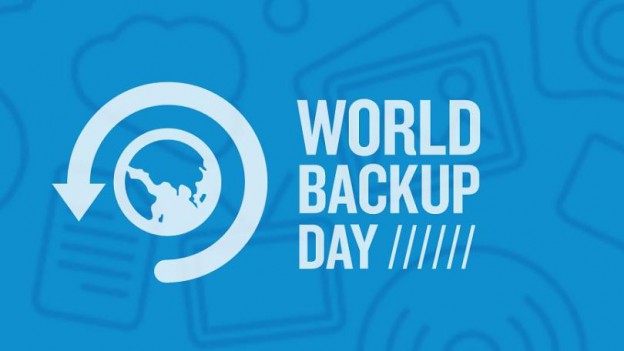Air pollution

So with the weather improving and the longer lighter evenings, many of us, including myself, might be thinking of going for a short run or maybe walking home from work rather than catching a bus. It’s hard enough to motivate yourself, so when I heard on the news today that we are being advised not to do any exercise today, well, the decision was simple! I will now be enjoying a glass of wine at home, while working out how to eat my 7 fruit and veg a day.
How can I possibly link this story to our online backup services. Well I found a way. We are currently replacing a number of our older servers with servers “designed for the data centre and built for the planet” A claim HP make. These new servers use up to 89% less energy.
Read the full Air Pollution here https://www.bbc.co.uk/news/uk-26844425
Personal Information of 500,000 Students Left Unsecured
A PC hard drive containing personal information of more than 500,000 student loan recipients was left unsecured for extended periods of time by government employees and was not protected by a password or encryption.Thankfully this wasn’t in the UK, but stories like this are far too common and unnecessary with today’s technology.
Read the full story here http://www.ctvnews.ca/canada/lost-hard-drive-with-student-loan-data-lacked-password-protection-1.1744884
When Good Clouds Go Bad
Western Digitals new cloud backup service failed it’s users for nearly a week due to technical problems with their own private cloud. The outage affected WD newly launched NAS backup service “My Cloud” which gives external storage for their NAS products.
Starting on March 26, 2014 the server that WD used to support these services went down until midnight on April 2, 2014. Many customers experienced problems with their cloud backups and remote access. This was especially an issue for users whose router was set up in relay mode rather than with port forwarding enabled
Any electrical item can fail, which will causes downtime whoever you are. Amazon Cloud Service failed in 2012 taking their cloud services down for several hours, and again in 2013, another large failure took them offline, but this time they were able to get the service back up and running in 49 minutes.
We are far from perfect; we have had downtime too, but thanks to replicated data and servers in a second data centre, we can boast 99% up time in our 10 years of offering Cloud backup solutions.
So no cloud service will ever give 100% uptime, but the key thing here is how they recover from outage, something WD have to admit, they failed on this occasion
The Heartbleed Bug – Are your servers secure?

On April 7, 2014, a team of security researchers announced the discovery of a critical vulnerability dubbed “The Heartbleed Bug”, found in OpenSSL, a widely-used open source cryptographic software library which allows attackers to read the memory of the systems using vulnerable versions of OpenSSL software.
This may disclose the secret keys, which allows attackers to decrypt and eavesdrop on SSL encrypted communications and impersonate service providers. In addition, other data in memory may be disclosed including names and passwords of the users or other data stored in memory by the service
We have run a number of checks on all of our servers and can confirm none of them are vulnerable to “The Heartbleed Bug” Our tests included using various security systems like SSLabs which gave all our servers a good secure ratings.
The future of data storage? Scientists store a FILM in DNA!

Incredibly exciting news has landed in the data storage industry this week! Scientists at Harvard University have discovered a way to encode a film into bacterial data, it has been revealed this week.
As more and more people around the world go online and search for places to store their data, scientists have trying to create new and innovative methods by which individuals can store their data for the future. This method is very unconventional, to say the least – the scientists have been called “crazy” by one newspaper. While DNA data storage had been mentioned before as a possibility, this is an astounding breakthrough. As some people have cleverly pointed out, this is the first truly viral film ever made!
The Harvard scientists managed to encode Eadweard Muybridge’s classic short film Horse in Motion, which was one of the first animations ever made, dating back to 1878. Muybridge’s animation was chosen because it shows a simple movement of a horse galloping, so the scientists would be able to easily compare their version to the original.

The original “Horse in motion” film (top), and the version reproduced in bacteria (bottom)
Their study was published earlier this week to great excitement. The film was produced by achieved by writing information and encoding black-and-white pixels into the genomes of living bacteria. As this gif shows, their reconstruction in bacteria was almost identical to the original. The DNA version can now be used to produce millions of copies, Clever stuff.
While you may not be able to watch Avatar in a pool of bacteria just yet (we know you’ve always wanted to), and we wouldn’t recommend storing all your files in a strand of DNA for the time being, this is a highly exciting development in data storage. While small amounts of text have previously been stored in DNA, this suggests much more is possible.
In the meantime, if you’d like a slightly more conventional way to store your data, check out our backup services. We promise not to require your DNA to provide our service. If you have any queries about personal or professional data storage, get in touch with a member of our team.
Cyber Attack & Secure Data Storage

Threat of Cyber Attack
According to a recent survey by KPMG, four in ten leaders of UK business’ believe they will be targeted by a cyber attack with the case being “when” not “if” they will become a victim.
Of the 150 UK CEO’s questioned, 39% responded saying they thought it inevitable they would be the subject to an attack and as such have started contingency planning for the event. This number was much wider when added to the 1,300 business leaders worldwide, with 49% thinking the same.
It is hard to disagree with these industry leaders when you see the names who fell victim to cyber crime in 2017. The CIA, NHS, Facebook and credit card company Verifone were just a small example of the extent cyber attacks reached.
“The seeming inevitability of a cyber attack crosses all borders and has now crossed firmly over the threshold for the board-level discussions” said Bernard Brown the Vice-chair of KPMG in the UK.
Secure Data Storage
With the introduction of GDPR in May this year, the question of how organisations securely store data against cybercrime has become far more important than ever before. Many companies of all sizes are turning to cloud data storage and disaster recovery (DRaaS) to help keep them in business should they be attacked.
The need for secure storage of customer, employee and supplier data has increased significantly, as have the penalties for irresponsible data handling. Having a secure cloud data storage platform where you can rest assured your data is encrypted away from unwanted eyes can be a priceless commodity to many UK based organisations.
Our cloud backup services are ISO 9001 and ISO 27001 accreditedgiving customers reassurance our consistent service and can help protect company assets and minimise risks. Your data is held at two separate locations to minify the risks of onsite data corruption, just as we are your back-up, we need our own.
With secure data storage becoming a serious boardroom conversation, this is a landmark moment for the data industry. Consumers are becoming alert to the importance of keeping their data securely stored and organisations are increasingly held accountable on their data holding practices.
Safe Data Storage provides secure cloud backup servicesfor business, education and charity, giving you peace of mind that your data is safe. For more information,get in touch
5 Data Storage trends to look out for in 2018

We’re already well into the New Year, and as is customary each January, it’s a good time to look at what we can expect to happen in the year ahead.
Making forecasts for industries as fast-moving as the data storage industry isn’t easy, but we’ve looked into our crystal ball and put together a few predictions to help you make sense of things.
1. Businesses will become more savvy about data protection
Although data protection has become an increasingly common and important concept in the business world in recent years, many businesses are still complacent about the security of their data, believing they do not need to back it up as the probability of suffering negative consequences is slim.
However, the news of huge data leaks in 2017, coupled with their customers’ increasing concern about data privacy, means that businesses of all sizes will have to take data protection more seriously this year to avoid losing customers who cannot be assured that their data is safe.
2. GDPR concerns will mean UK businesses turn back to UK storage providers
The much-discussed General Data Protection Regulation, which has been called “the most sweeping change to data protection in the past 20 years,” will be coming into force in May. This means many businesses will be panicking about ensuring they are GDPR-compliant by the fast-approaching deadline.
As we explored previously, while the impact GDPR will have on businesses is still unclear – hence the widespread panic about its introduction – industry experts believe the best option for UK businesses is to store their data with a UK-based cloud backup provider, as providers in other European countries may follow different, non-GDPR-compliant data privacy regulations.

GDPR will cause headaches for businesses in 2018
3. Data will be headline news
A combination of the previous two points means that data will be a more important news story than ever in 2018. Consumers’ data privacy continues to grow into a huge current news story, and massive cases of data leaks of sensitive consumer information will only fuel the fire. In addition, the potential for companies to be wrong-footed by GDPR is also likely to create headlines. There will be more media attention on the data industry than ever before.
4. Encryption will become more popular
One of the best ways sensitive data can be protected is through using end-to-end encryption. Safe Data Storage are among those to already provide this feature, and according to Interop’s recent 2018 State of Infrastructure study into business’ data practices, 39% of respondents said they would be investing in encryption this year, making it the study’s most invested-in area of data security.
5. Cloud storage becomes the norm
The amount of data stored in the cloud, and the amount of businesses using cloud storage, has steadily increased over the last decade or so and looks set to rise sharply in 2018 as businesses realise it is the safest place to store important data.
While tech giants such as Amazon and Microsoft provide their own cloud storage, many businesses will look to cloud backup services that offer data recovery options longer than the 30-day period often operated by the aforementioned.
What the Facebook data breach tells us about the public’s attitudes to data security

In January we consulted our crystal ball and predicted that data – in particular the public’s data privacy, and large-scale breaches of it – would be headline news in 2018. What we didn’t expect was to be proved right so soon by the massive Facebook data breach exposé that has dominated the headlines this month. Feel free to ask us for this week’s lottery numbers…
Facebook users across the world are still reeling from reports that 50 million Facebook profiles were harvested by Cambridge Analytica, a UK-based data analytics company, in an enormous data breach for use in political campaigns including Donald Trump’s presidential bid and Brexit.
Facebook users’ ‘likes’ and other information on their profiles was used to target them with political propaganda encouraging them to vote for the candidates Cambridge Analytica was working with.
The effect of the news of the breach has been to make consumers more aware of their data and how it is being used. Cambridge Analytica’s data acquisition can be traced back to Facebook quizzes in the early years of this decade where users blithely granted access to their and their friends’ data in order to take part in quizzes.
Already, as a result of this story breaking, it’s hard to imagine Facebook users casually signing over their data to third parties en masse any longer without knowing how it will be used. Indeed, many users have left the platform altogether out of concerns about the security of their data.
For businesses who handle sensitive data about their customers or users, there is a clear lesson to be learnt from this: consumers are growing increasingly aware and passionate about their online privacy and how their data is used.
It seems clear that data security will become an increasingly important factor to consumers when they are choosing between services and products.
Of course, the Facebook breach has happened against the backdrop of GDPR’s introduction, which has been worrying businesses by itself. Organisations are required to be GDPR-compliant by the fast-approaching deadline of 25 May. Read more on GDPR on our blog.
GDPR gives individuals more access to, and rights over, their data and how it is used. It will force businesses to reassess what data they collect on employees and customers and the collection of all of this information is strictly necessary.
In addition, individuals have the ‘right to be forgotten’ if they object to some of the data being collected about them.
This is clearly a landmark moment for the data industry, with consumers awakening to the importance of keeping their data secure and organisations increasingly being held to account about their data practices.
Safe Data Storage provide secure cloud backup services for businesses, education providers and charities, giving you peace of mind that your data is safe.
For more information, get in touch.
What is World Backup Day? Our Guide

If you’re an avid Twitter user, and especially if you work in technology, you may have seen publicity about World Backup Day a few weeks ago, which was celebrated on March 31st. But what is the purpose of this day and how did it start?
Make sure you’re ready for next year’s World Backup Day with our handy guide.
Background
World Backup Day was started in 2011 by digital consultant Ismail Jadun. It is celebrated on March 31st every year – a date chosen because it’s the day before April Fools Day…and of course you’d have to be a fool not to backup your data!
The day comes from humble roots; Jadun conceived the idea when he saw a Reddit post by a tech user who had lost their hard drive and wished someone or something had reminded them to back up their data.
“I thought it was a wonderful idea,” said Jadun, who then set up a day to do just that. “It’s wonderful to see people and schools around the world promoting the importance of backing up our data.”
What does it involve?
Of course, backup up their data should be on business’ minds all year round, but World Backup Day serves as a useful way of reminding people of the importance of securing their data and brings the matter into the public consciousness for a period before and after March 31st each year.
The day also raises awareness of the various ways data is at risk if not backed up, from devices being hacked or stolen to accidental deletion to viruses.
The day’s founders ask internet users to “take the pledge”, which goes as follows: “I solemnly swear to backup my important documents and precious memories on World Backup Day, March 31st.”

Twitter was flooded this year with users vowing to ‘take the backup pledge’
This year’s World Backup Day is arguably the most important yet with the impending implementation of the new GDPR, which will change many business’ data storage and protection practices.
A survey conducted for this year’s World Backup Day by its organisers found that 30% of users have still never backed up their data. Though this shows a slight reduction from figures in previous years, this is still a significant proportion of users whose data is not secured.
Safe Data Storage provide cloud backup solutions for businesses, schools and charities. For more information, get in touch today.
Data D-Day: GDPR Finally Arrives

It’s been rumbling threateningly towards UK businesses for a long time now, but tomorrow (25 May 2018) marks the deadline for businesses to become GDPR-compliant, a date otherwise known as Data D-Day.
Businesses can’t say they haven’t been warned – anxious chatter about GDPR (the General Data Protection Regulation) has been going on for months – but that hasn’t stopped many companies from putting off confronting the new regulations until the very last minute.
This isn’t surprising: there’s a reason why people are using audio of the regulations being read out to help them sleep. Trawling through the long-winded legal jargon and coming up with a plan to make your business GDPR-compliant can be tedious and hard work.
Unfortunately, like all jobs that you can’t put off forever, planning for GDPR is very important and needs to be dealt with eventually. Businesses need to ensure that only strictly necessary data is kept on customers, that up-to-date records are maintained of what data is stored where, and that processes are in place for keeping data safe.
The new regulations will put power firmly in the hands of individuals, who will now have the right to ask what information a company holds on them and request its correction or deletion if appropriate. This is the so-called ‘right to be forgotten’.
Put simply, many businesses will have to completely rethink their data collection and storage practices, and will likely have to audit the data they currently hold to ensure it meets the incoming regulations.
This is where Safe Data Storage can help. Our cloud backup services offer secure online data storage for businesses, charities and schools, allowing you to put your mind at rest knowing your data is safe.
With our services, all data stays in the UK at our two data centres, located in London and Bournemouth.
Data is fully encrypted at all points of the backup process, protecting the privacy of the individuals to which the data pertains.
For more information about how our services can help your business become GDPR-compliant, see our guide to GDPR, or get in touch today.
Recent Posts
- Announcing our new Veeam partnership and capabilities
- Changes to Microsoft Authentication for Exchange Online C2C Backups
- What is C2C backup?
- Three Main Types of Schedule Backup Software
- Secure Your Business with Right Backup Software
- Backing Up Your G Suite Data
- Safe data storage for educational institutions
- Why you need backup for Office 365?
- Online backup for a small business
- Cloud Storage for Charities - What are the Options?
Categories
- All
- Cloud Backup (21)
- Cloud Reseller (9)
- Cloud Storage (11)
- Data Recovery (6)
- Data Storage (10)
- DR Services (1)
- Education Backup (11)
- Fun (1)
- In the Community (1)
- In The News (10)
- ISO 9001:2015 certification (1)
- IT Resellers (8)
- News (11)
- Old Posts (75)
- Online Backup (12)
- Online Data Storage (6)
- School Backup (9)
- Secure Online Storage (11)
- Technical (10)